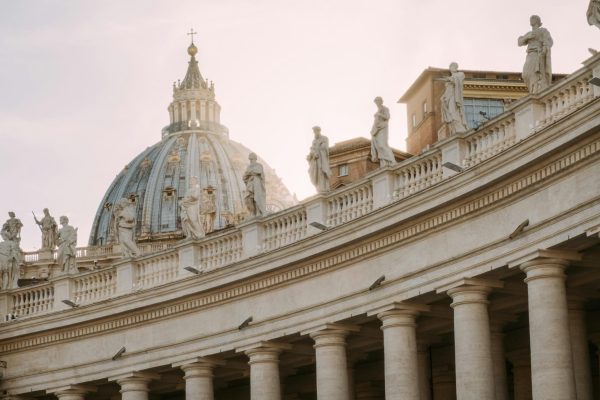Building Toward the Future: The Infrastructure Bill
After months of tireless debate in both the House and the Senate, President Biden’s $1.2 trillion infrastructure bill has been passed. The bill includes funding for a variety of sectors and initiatives, with $555 billion dollars to safe travel and efficient transport in the United States. Though much less expensive than the originally proposed $2.25 trillion American Jobs Plan, the bill still demands a lot of money, which the government promises will not be taken out of the pockets of most Americans.
Roads, bridges, and other major infrastructure projects will be receiving the bulk of the money: $110 billion. The bridge repair and rehabilitation plan is the largest single project dedicated to roads/bridges since the construction of the interstate highway system, CNN reported. According to the White House, over 20% (173,000 miles) of America’s highways and roads are in poor condition, and this plan will aid in repairing them.
AP Government teacher Jonathan Cornicello believes that “every day, Americans will see small improvements in roads, bridges, structures that we use all the time.” Sophomore Amelie Duch expanded on this idea. “American lives, more specifically the lives of commuters, will be greatly improved as highways, bridges, railroads, and other forms of transportation will be safer,” Duch said.
Additionally, $16 billion will fund programs that traditional funding could not organize. Safety is a top-priority of the bill, with $11 billion in funding for transportation safety, reducing crashes and fatalities is a chief goal. The bill will also fund repairs and updates of rail and transit systems. Cut down from President Biden’s initial desire of $85 billion, $39 billion will modernize public transit. Rail and freight travel will receive $66 billion to expand, and $12 billion is going towards funding high-speed railways.
As people in America grow more and more reliant on the internet, $65 billion has been put aside to strengthen broadband in lower-income areas, helping less advantaged individuals to have access to Wi-Fi. Moreover, as the White House works to lessen carbon emissions, $7.5 billion has been reserved for electric vehicles, $25 billion has been reserved to reduce airport congestion, and $17 billion has been reserved for ports. This money will aid in making traveling more environmentally friendly; furthermore, $65 billion dollars of the bill will go towards building a new electric grid and renewable energy, which Duch believes will “improve the lives of future generations.”
With 50 states and almost four million square miles for this money to go, some people will benefit more than others. U.S. News reports that even though America’s most populous states — California, New York, and Texas — are receiving the most money, they will not be benefiting the most per capita. Alaska, Wyoming, and Vermont, though smaller, will be impacted the most; in Alaska, the per capita is $6,721 per person.
The bill also has funds going to designated states for specific reasons. For example, money has been put aside for Arizona, Washington, and Oregon to fight wildfires and for Michigan to improve its water infrastructure. Darren Olson, engineer and vice chair of the American Society of Civil Engineers’ 2021 Report Card for America’s Infrastructure, said, “It’s something that our generation, we can kind of put our stamp on – this is how we moved infrastructure forward in the U.S. It’s not going to solve all of our problems, but it’s a great step forward.”
Though not adding taxes for people who make less than $400,000 a year, the bill will add $350 billion to the national deficit. It is also relying on a 33% return from investments.
The bill is funding many large projects, so Americans might not see results right away; however, when changes do emerge, people’s lives will be changed. Duch believes the bill is a “huge step” in Biden’s presidency since it was passed with “bipartisan support.” Cornicello added, “This bill may be a sign of things to come. Perhaps this will help move legislators into passing his Build Back Better bill.”

I am Sophie Ward, and I am a managing editor for lhshorizon.com. I am a member of the Class of 2022. I love playing tennis and working out. I also enjoy...



















